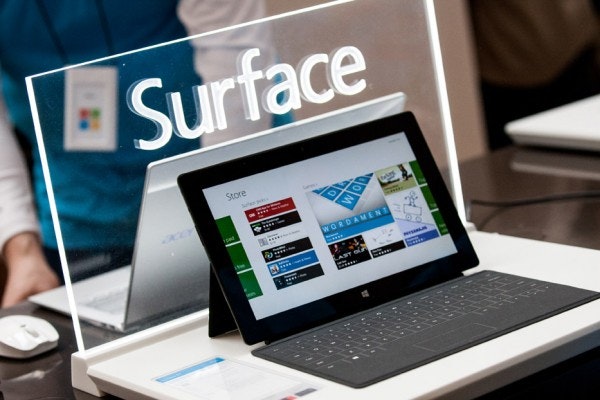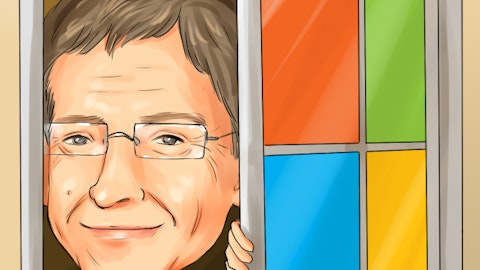As much as the blogosphere and Wall Street analysts tend to love Apple Inc. (NASDAQ:AAPL), they tend to malign Microsoft Corporation (NASDAQ:MSFT). One of the Achilles’ heels that the company has faced in the smartphone wars is that its app store has not been on par with Apple’s. When Microsoft recently made a major push to “catch up,” even this move was not particularly well received by the Street. Ultimately, Microsoft is making important progress in smartphones, tablets, and gaming, while maintaining its core enterprise business. The naysayers may shout loudest, but I believe Microsoft remains an absolute must-own name in the space.

The app store shuffle
There can be no doubt that Microsoft has a truly Herculean task ahead of it if it is going to assemble an app store that can be seriously discussed in the context of Apple Inc. (NASDAQ:AAPL)’s iTunes or Google Inc (NASDAQ:GOOG)‘s Play. To help address the problem, Microsoft Corporation (NASDAQ:MSFT) debuted a development initiative called “Keep the Cash.” Under the promotion, developers can earn $100 for every app that they publish for either Windows Phone or Windows 8 through the company’s app store. The program caps the awards at $2,000 per user and a total of 10,000 awarded apps, meaning the company will spend up to $1 million to keep building out it offerings.
Rather than being praised for the initiative, one analyst, Patrick Moorhead of Moor Insights & Strategy, questioned the message the program sends. Other analysts questioned what level of developer would be incentivized by a paltry $100, and others expressed concern that the program would lead to high volume, not high-quality apps.
This seems to be another example of Microsoft’s poor reputation leading the story. While Microsoft currently has around 50,000 apps, it is pushing to grow this number. In many cases, being able to boast a high number is as important as what those apps actually do. The core apps that most people use are available across platforms in many cases. As the Windows OS becomes more popular, more and more commercial apps will be offered on Windows, so a push to hit some critical mass seems like something to be applauded, not ridiculed.
To put this in some context, at least in my opinion, when Google Inc (NASDAQ:GOOG)’s Android was sitting where Windows currently sits, the naysayers were just as loud. Why would anyone buy Android when there are so many more apps available for Apple Inc. (NASDAQ:AAPL)’s iPhone? Google ignored the doubters and swelled to own the global market. Furthermore, and I know that this is not specifically the point, but of the 700,000 apps available on both Android and iTunes, how many are regularly used? According to some reports as many as 400,000 of those apps have never been downloaded. But 700,000 is still bigger than 50,000.
Other developments

The latent ecosystem
While Microsoft has not really pushed the issue yet, as each of its recent new releases begin to take hold, I would be looking for the company to make a major push at solidifying an ecosystem. The company’s smartphones, tablets, video game consoles, cloud solutions, and, of course, Windows 8 on your PC may not alone have made huge impacts, but were several of these portals to be combined, the result could help rocket Microsoft Corporation (NASDAQ:MSFT) to a much stronger position than the company has seen in years.



